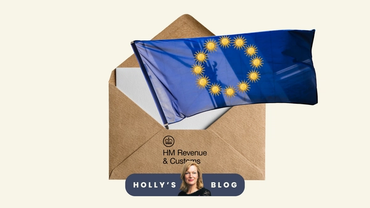An Idiot's Guide to Bonds
30 Sep, 2022

This week it’s An Idiot’s Guide to bonds, yields, gilts and LDIs. Oh come on stick with me! Now follows your quick BS-free guide to what’s going on, so you can dazzle and impress your friends down the pub this weekend. I promise it’s not as hard as they make out! (Before we get started, a quick reminder to submit a meter reading this weekend! Remember the energy price cap goes up on Saturday!).
Set the scene
Last week, the Chancellor Kami-Kwasi Kwarteng stepped onto the financial dancefloor and cut lots of tax. The Government still needs to pay for stuff, and so the less he gets in tax from us proles, the more he needs to borrow. They borrow from people and institutions (these loans are called bonds) – and then pay interest on this money (this interest is called a yield).
'Hang on!', thought pretty much everyone after this most major of mini-budgets. 'Where’s the money going to come from? What’s he doing? Does he even know what he’s on about!?!?'. With the UK making Papua New Guinea looking like a safe financial haven, all the ‘men in suits’ around the world gave the UK Government a big fat 0. And ran for the hills.
This means the pound fell because no-one wanted it. UK Government bonds fell in price because suddenly there were more bonds looming on the horizon to fund the Chancellor’s borrowing, and people weren’t so keen on them. And because the UK Government felt like a riskier bet, people demanded higher interest rates to compensate for the extra perceived risk of lending to someone a bit iffy. Higher interest rates are what the men in suits call higher yields.
So. Low pound. Falling bond prices. Higher yields. Ouch.
Pensions woe
We were all so busy watching Kwasi’s paso doble, that we forget about the boring pensions in the corner until they sat up and shouted 'MELTDOWN!'. Let’s unpack this.
Great big pension funds have great big sums of our collective money, which they invest on our behalf to pimp our savings. They are an enormous purse which needs to pay out pensioners at the end who want their money (liabilities). Invest our money (assets) to make it grow. And take in money from younger people paying in. They need to balance the books so they can afford to make the payments out.
If I set up The Holly Pension, and I knew I wanted to retire in 2030, then I could buy a UK Government bond (or ‘gilt’) which matured in 2030 and paid a 3% yield on the way. So I lend my money to the Government for a known period of time, get it back at the end to pay me my pension, and I’ve made 3%+ on the way. Lovely and neat.
But there are 2 snags to this. One, in reality no-one in your pension fund starts their job on the same day and stops working on the same day, so pity the poor actuaries who have to try and work out who they are going to owe what to and when – and making sure there’s enough in the purse to pay it (liability matching). And second, if you only make me 3%, I think you’re a bit rubbish. Try harder please.
Meet the middlemen
Pensions sometimes use a middleman to help them spread their investing into a much broader range of sexier investments than they could otherwise access. Because bonds are typically safe but very boring. Zzzzz.
If you get fancy, you can buy things like an ‘interest rate swap’. In schemes called Liability Driven Investments (LDIs). Instead of buying the actual boring bonds with all of your hypothetical £1 million, you could find a middleman, spend say £100,000 to get exposure to these boring bonds with predictable timeframes, without actually having to buy them all. Guarantee you can pay out what you owe on time. And spend the remaining £900,000 on more interesting things. These sorts of strategies are supposed to make life smoother and more predictable for the pension funds.
At its core It’s no different to how a mortgage works. You stump up a small % of the total value to get access to the whole house, there’s a servicing fee to pay a middleman (broker), but you get the whole house without having to spend all of your money on it. The middleman is OK because they have your house as collateral.
This is all lovely… until we see sudden price swings
The middleman (in this case, a fund manager who offers what we call Liability Driven Investments) has also taken some risk. And the £1 million house (or bonds) has now shrunk in value to say £700,000 because of Kwasi’s turn around the financial floor. This makes them on edge.
The fund manager doesn’t want you to go belly up and not pay him back. He wants some more collateral. And the worse these bonds perform, and the less that they become worth, the more he wants you to stump up as collateral.
So he turns up at your digital doorstep, grinning nastily, and says 'Cough Up!'. In order to cough up, you need to sell some of the other lovely stuff in your pension fund. To get him off your back.
Just when it was already looking ugly, it got a whole lot uglier when the pensions funds realised the horrible irony that they had to sell government bonds, to get some more money, to give to the middlemen, who had come to them because the price of Government bonds had fallen… and then the price went down more, and so more nasty men come out of the woodwork, 'Cough Up!', and then more people sell, so the price goes down again and... oh woe and doom and gloom.
I’m holding out for a hero…
Enter stage right, the Governor of the Bank of England in his tux. Elegantly waltzing onto the floor and magnanimously buying bonds (a cool £65 billion of the blighters) to keep the price high. And he calmed the financial crowds who by this stage were doing a frenetic jig. Whilst secretly wanting to kick the Chancellor in his glitterballs.
For now this intervention has calmed things down and the LDI providers have stopped shouting and sweating. For now.
Have the pensions guys been silly?
Not really. It’s not cavalier behaviour to assume that bonds are mostly boring. They are not supposed to behave like they have this week. Government bonds are the librarians of finance. You do not expect them to rip of their trousers and do the macarena in gold sequined hotpants. But this week they did as a sequence of events came together to spook markets, punish the pound and spank bonds.
So what?
I don’t think retail investors should worry too much about pensions. Watch from the sidelines.
As for mortgages, there is a real question about whether and when to fix. With interest rates forecast to hit about 5.5% next summer, it is worth at least considering a remortgage. Remember you can fix in a rate now if your current deal is coming to an end in the next 6 months. But don’t panic and remember any chunky early payment charges. Also, everything goes in cycles and we are in very unusual times with a recession looming – which usually means a lower interest rate environment ahead in the medium-term.
There’s no harm in speaking to a mortgage adviser to find out the lie of the land. We’ll be writing more on mortgages next week, so tune in again next Friday.
Over and out people. Have a lovely weekend and submit that reading! If the sites all crash today and tomorrow, don’t get tech rage. Most providers will give you 3 or 4 days to submit these readings.

Stay up to date!
Already have an account? Login
Post a comment:
This is an open discussion and does not represent the views of Boring Money. We want our communities to be welcoming and helpful. Spam, personal attacks and offensive language will not be tolerated. Posts may be deleted and repeat offenders blocked at our discretion.













Im going to lay down in darkened room dream of waking up in 2024 with loads of money.
Raymond
14 October 2022